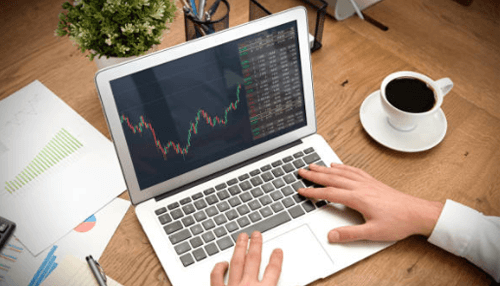Recently, retail investors have woken up to the potential of CFD trading. Though not without their risks, day trading with CFDs represents a decent way to diversify your investment strategy.
Why People Are Talking About the CFD
The CFD is a financial derivative that allows you to bet on the price movement of various financial assets. The CFD is simply an agreement wherein the seller promises to pay the buyer the difference between an asset’s value and its value at a later time. By the same token, the buyer is obligated to pay if the asset price moves in the seller’s favor. Through CFDs, you can cheaply speculate on the movements of the stock market and the commodities market.
With a CFD, you don’t need to only speculate that the underlying asset will gain value. If you take a short position, you can predict that a stock or index will fall. This allows you to realize profits when traditional investors are seeing significant losses. Through CFD trading, you can hedge against the painful corrections that occasionally haunt asset markets.
Assessing the Risks of CFD Trading
Day trading with CFDs involves purchasing CFDs that expire within a day or less. When you day trade, you can quickly take advantage of fleeting price trends you identify over the course of the day. On the other hand, day traders deal with unique risks.
CFDs date back to the early 1990s. Because this finance product is relatively new, the CFD market is not highly regulated. That’s why you should conduct adequate research before making any major CFD purchases.
Generally speaking, CFD trading is leveraged trading. According to the helpful investment experts with Capital.com, “While leverage enables you to spread your capital further, it is important to keep in mind that your profit or loss will still be calculated on the full size of your position.”
That means you may take on exposure to a big position without needing to pay the entire cost at the outset. Naturally, you shouldn’t alter your risk profile when trading CFDs. Whatever your initial expenses, you should maintain the same prudent leverage habits.
How CFDs Are Changing the Investment World
Due to the rise of innovative new trading platforms such as Robin Hood, all brokerage firms have been forced to reduce their commissions to levels that were previously unheard of. This applies to CFDs as well. Arguably, innovative financial products like CFDs are changing the profile of the average investor. Ordinary, non-wealthy people are now empowered to take advantage of stocks, commodities, and other financial assets.
Without question, trading CFDs is one of the easiest ways to do commodities trading as a retail investor. Buying commodities like gold and silver can be financially taxing. The CFD allows you to start trading at a minimal up-front expense.
Though controversial in some quarters, trading CFDs is perfectly safe if you exercise caution. Short-term CFDs can provide you with profit opportunities that may have long seemed beyond your reach.



